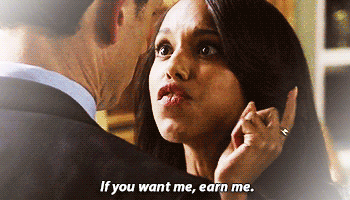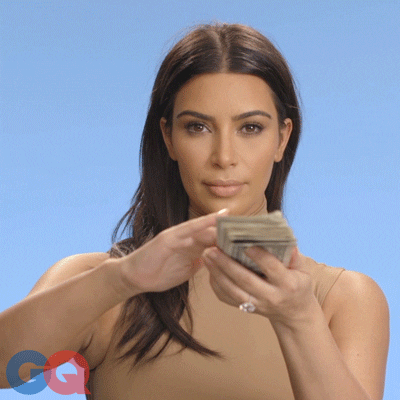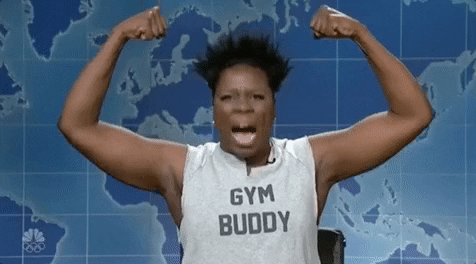Excerpt: I know I’m not the only woman that has a weird relationship with asking for money. But if we want to be respected by others, first we need to learn how to respect ourselves… including, asking for compensation for our time, effort and experience. In this article I tackle the hard question: where to start?
My partner and I often visit Singapore. It’s mostly for business, but of course being a shopping mecca, I/we can’t resist a few purchases.
On a particular trip, I needed some pants hemmed (at 5’1, this is the story of my life #shortie).
We went next door from our hotel to Far East Plaza – and found a seamstress – who barely looked up from her work as we stood at her counter.
“What you want?” she near shouted, in her broken English.
I explained, “a simple hem job, please”.
Done. I put the pants on the counter and turned to walk away.
Now one needs to understand that all my past experiences in getting clothes hemmed worked this way.
Pass over the clothes.
Get a numbered ticket.
Pay when you pick them up.
Instead, she said four words that I believe not only showed a level of self-respect anyone could admire, but a launchpad to question my own worth:
“You pay me now!”
The question is, how many women out there ask, clearly and confidently, for what they’re worth?

How much is your knowledge worth?
My partner and I always joke – he wants to buy the world; I want to save it.
Probably comes as no surprise I’ve always felt uncomfortable charging people.
In contrast, there is no murkiness in my partner’s sense of worth and value.
“You pay me, I get results. Period.”
Yet in my mind it goes something like this:
“I have the information already, you need the information, ergo it should be free.”
Makes about zero sense, doesn’t it?
But then, a dinner party made me question the word ‘free’.
Like most such events, after eating too much we turned into food coma sloths, trying our best to keep the pulse of the conversation.

One person asked:
“I wonder why this happens? That is, why do we feel so… ‘yuck’”
I understood it, so I explained the basics of glucose regulation – how sugar travels throughout the body, how cellular receptors work to ‘unlock’ doors so that sugar can pass in and out, where it’s stored (liver, muscle)…
Everyone looked at me like I was from Mars.
In my mind – I thought everyone knew this information – right?
Wrong.
I forgot that this information was developed over 10+ years of study, countless hours of reading and writing, the blood and sweat (literally) of my laboratory research, the early starts and late finishes where I had to drive home from the university in the dark in -40C when my car heater didn’t work (I actually had the ‘genius’ idea to put tealights on my dashboard – no comment). The countless times I gave horrible presentations where the feedback brought me to my knees but continued to grow and grow through each feedback firing line.

No, this information wasn’t easy to gain, because the entire time I was learning, I spent most of the time telling myself:
“You’re so stupid, you’re an idiot, you’ll never understand this”.
Say that enough times, and you can’t believe anything else.
Whilst the psychology of this belief system is a topic for another day, it points to something important:
You’ll never appreciate the value of your knowledge if you don’t first value yourself as a human.
Women and their worth
Before I get into the incident that sparked the article in the first place, I think it’s helpful to first ask:
Why do many women struggle with their worth?
There are probably hundreds of reasons, but I’d like to concentrate on three (I actually started with 10…)
(Now, before you sharpen your pitchforks, I am NOT saying that men don’t struggle with these things; I am simply sharing from my personal perspective and through the stories I’ve heard from hundreds of other women).
1. Ingrained Beliefs & Stereotypes
What is the first characteristic you think of when you think of women? Likely nurturing, caring, giving, etc.
What about the first characteristic you think of when you think of men? Likely protectors, strong, perhaps even ruthless, etc.
Whilst these ‘default’ characteristics are slowly changing with the help of this strong-headed generation (Gen Y? Gen Z? I can never remember), old habits die hard.
I’ll give you an example.
At an event I co-hosted in the start of 2021, we gave out name tags that had a creative spin: above your name, attendees were to write their ‘word of the year’.
The event was attended mostly by women, with a few males including my partner.
The women’s nametags included words such as:
- Organisation
- Passion
- Caring
- Empathy
- Health
My partner, however, took the magic marker and in big capital letters wrote:

Ever since, I’ve truly and utterly tried to adopt this ‘winner’s’ mindset because I know how beneficial it would be for me!
Some days I rock it like a boss, whereas many others a softly spoken voice whispers in my ear: but if you win, someone needs to lose.
And so it begins – the must-put-everyone-else first narrative which can quickly sidestep to they-deserve-it-I-don’t.
Side note to consider: Something that has helped me change my relationship with the word ‘win’ is reminding myself that ‘winners’ can help others win by giving them a helping hand to rise as well (i.e. mentorship).
2. Money Equals Greed
Think about the Kardashians – if they were male, do you think we would still have the public yelling out dismissive comments and insults such as:
“You just care about money”
“You’re so full of yourselves”
“You have no heart”
I doubt it. Likely they would be classified as smart businessmen.

Now what I don’t want this to become is an ‘all men are bad’ diatribe – because in my own experience, men are friggin’ awesome – and have done nothing but support me and cheer me on.
I simply want to point out the narratives that we should question – specifically those that support the idea that women and money don’t mix.
Side note to consider: A simple one, but I always think back to the times of bartering with goods. I needed a goat, you had a cow, let’s switch! Money is just one form of currency of many.
3. Other People are ‘Better’
“Just because you’re not the smartest, most talented and experienced person in the world, doesn’t mean you can’t contribute.”
This line, taken from one of my keynotes always hits home with the audience.
This concept is certainly strong in academia, as per my food coma example above.
The problem with self-growth is, more often than not, we gain knowledge and experience over time, just like you build muscle in a gym over time, not in one day.

While this knowledge is wonderful, sometimes we forget how much time and effort we spend gaining this incredibly valuable knowledge. This may result in us thinking we have always known what we know.
There will always be people that are (emphasising the quote-unquote here) “better” than us.
The problem with this is, we don’t think ‘they have better (more refined) skills than us’, we default to ‘they are better’ humans overall.
To be super clear: we classify ourselves as inferior, and we put others up on a God-like pedestal due to their ability to gain, apply and share knowledge.
We are so busy comparing ourselves to others that we forget about an important aspect of our worth: our ability to contribute.
So why don’t we?
- “I’m not ready”
- “It’s almost done, but ”
- “It just needs one more thing”
We *think* we need to make everything perfect before we ask for money.
Side note to consider: We’re not jumping out of a plane. We don’t need to make sure every single detail is cross-checked and perfected before we launch a service, give a talk or work as a consultant. We simply need to take action.

Freebies anyone?
Back to my story.
So what’s changed since that dinner party?
Time, experience and a whole lot of failure.
Firstly, let me be clear. I’m still working on the whole ‘money’ thing, but I’m now well past the stage of giving my time, effort and experience for free.
I don’t know whether this is an age thing, confidence or perhaps it is just the simple fact that I cherish any time I can get with my always travelling partner and my two masters, Eszie & Eddie 🐶.
But the point remains – if you respect me and the value I can offer, should I not be compensated for my time?
Here’s what happened.
On the week of 2023 International Women’s Day, not one, but two people asked (I would even dare say expected) me to do things for free.
Oh, but it got better.
- One asked me to advertise their event to all my followers, who I consider family.
- The other, get this, asked me for an interview for a podcast, then I pay to advertise their podcast.
- Only a few months before, I was asked to advertise a clothing store that was having a sale. Nothing offered such as “we’d love to offer you an outfit in return”.

Each of these requests demands had one thing in common.
Take. Take. Take.
And as a woman, I first felt the draw to
Give. Give. Give.
And let me also be clear: I am sure I’ve done this to others before in the past.
Yes, you read that right.
But I didn’t know better.
I did not respect people’s experience and knowledge the way I should.
I put my needs in front of theirs.
I expected that ‘help’ should always come for free.
And for that I do need to apologise.
But…
“When you know better, you do better” (Maya Angelou)
We need to start having more clear and honest conversations around when to charge for our time and how to ask for ‘free’ help from others.
We must start informing our youth, especially our young girls that there is a huge difference between doing something for someone because you want to vs doing it because you feel you have to.
These are hard conversations, especially in the workplace there are mountains of red tape and centuries of old narratives to get through when it comes to equal salaries and wealth distribution.
But we need to start somewhere.
Because at the end of the day, as Oprah says – “You can’t help people if you’re broke”.


